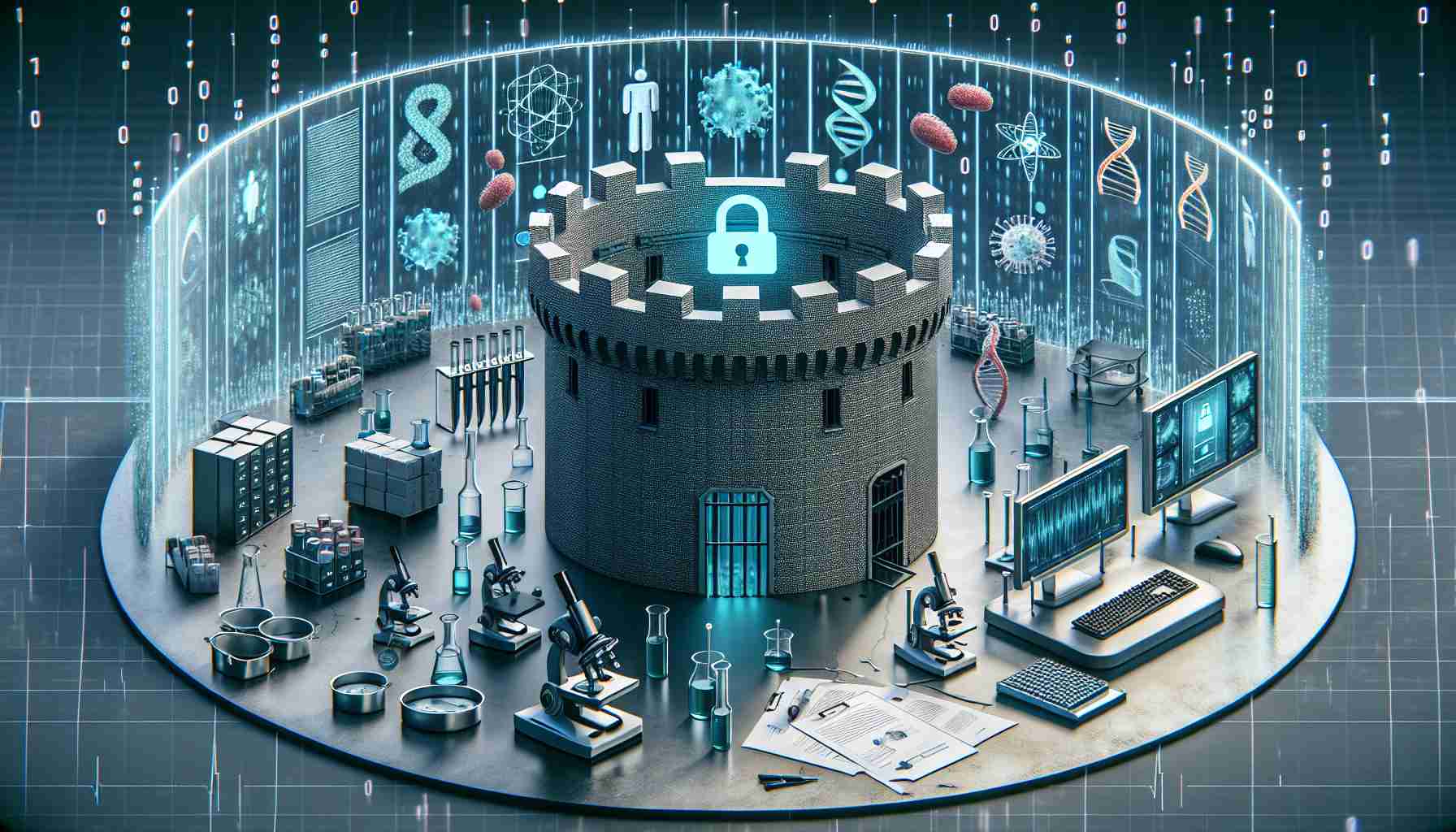A research team from KAUST has made significant strides in addressing the challenge of integrating artificial intelligence (AI) with genomic data while ensuring the privacy of individuals. By leveraging an ensemble of privacy-preserving algorithms, the team has developed a machine-learning approach that optimizes model performance without compromising privacy.
The traditional method of encrypting data to protect privacy poses computational challenges, as the data needs to be decrypted for training. This approach also fails to eliminate the retention of private information in the trained model. On the other hand, breaking the data into smaller packets for training using local training or federated learning introduces the risk of leaking private information.
To overcome these limitations, the research team incorporated a decentralized shuffling algorithm into their privacy-preserving machine-learning approach. By adding a shuffler within the differential privacy framework, they achieved better model performance while maintaining the same level of privacy protection. This decentralized approach eliminated the trust issues associated with a centralized third-party shuffler and struck a balance between privacy preservation and model capability.
The team’s approach, known as PPML-Omics, demonstrated its effectiveness in training representative deep-learning models for challenging multi-omics tasks. Not only did PPML-Omics outperform other methods in terms of efficiency, but it also proved resilient against state-of-the-art cyberattacks.
This research highlights the increasing significance of privacy protection in the field of deep learning, especially when applied to the analysis of biological and biomedical data. The ability of deep-learning models to retain private information from training data poses significant privacy risks. Therefore, combining privacy-preserving algorithms with machine-learning techniques is crucial for advancing medical research while safeguarding individual privacy.
By striking a balance between privacy and model performance, the PPML-Omics approach opens up new possibilities for accelerating discovery from genomic data. It empowers researchers to harness the power of AI for medical research without compromising the privacy of individuals.
FAQ:
1. What challenge did the research team from KAUST address?
– The research team addressed the challenge of integrating artificial intelligence (AI) with genomic data while ensuring the privacy of individuals.
2. How did the team optimize model performance without compromising privacy?
– The team leveraged an ensemble of privacy-preserving algorithms and incorporated a decentralized shuffling algorithm into their privacy-preserving machine-learning approach.
3. What are the limitations of the traditional method of encrypting data for privacy protection?
– The traditional method of encrypting data requires decryption for training, and it retains private information in the trained model.
4. How does breaking the data into smaller packets for training introduce the risk of leaking private information?
– Breaking the data into smaller packets for training using local training or federated learning introduces the risk of leaking private information.
5. What is the decentralized shuffling algorithm used by the research team?
– The research team incorporated a decentralized shuffling algorithm into their privacy-preserving machine-learning approach, which operates within the differential privacy framework.
6. What is the name of the approach developed by the team?
– The approach developed by the team is called PPML-Omics.
7. How did the PPML-Omics approach perform compared to other methods?
– The PPML-Omics approach outperformed other methods in terms of efficiency and resilience against state-of-the-art cyberattacks.
8. What is the significance of privacy protection in deep learning applied to biological and biomedical data analysis?
– Deep-learning models have the ability to retain private information from training data, which poses significant privacy risks. Privacy protection is crucial in advancing medical research while safeguarding individual privacy.
9. How does the PPML-Omics approach balance privacy and model performance?
– The PPML-Omics approach strikes a balance between privacy preservation and model capability, enabling researchers to harness the power of AI for medical research without compromising the privacy of individuals.
Key Terms and Jargon:
– Artificial Intelligence (AI): The simulation of human intelligence processes by machines, especially computer systems.
– Genomic Data: Information about an organism’s complete set of DNA, including genes and noncoding DNA sequences.
– Privacy-Preserving Algorithms: Algorithms designed to protect the privacy of individuals by ensuring data confidentiality and security.
– Machine Learning: A subfield of AI that enables systems to learn and improve from experience without being explicitly programmed.
– Encryption: The process of converting information into an unreadable format to prevent unauthorized access.
– Decryption: The process of converting encrypted information back into its original form.
– Differential Privacy: A framework that provides mathematical guarantees for privacy protection when analyzing sensitive data.
– Deep Learning: A subset of machine learning that uses artificial neural networks to model and understand complex patterns and relationships in data.
Suggested Related Links:
– KAUST: The official website of KAUST, the institution where the research team conducted their study.
– National Center for Biotechnology Information (NCBI): A resource for biological and biomedical information, providing access to a vast collection of genomic data.
– United Nations – Human Rights: Information on privacy rights and the importance of protecting individual privacy in the digital age.
The source of the article is from the blog karacasanime.com.ve

